
Features
7 MIN READ

By reading the Quran and fasting during the holy month of Ramadan, Muslims build a personal connection with Allah and reinforce their faith.
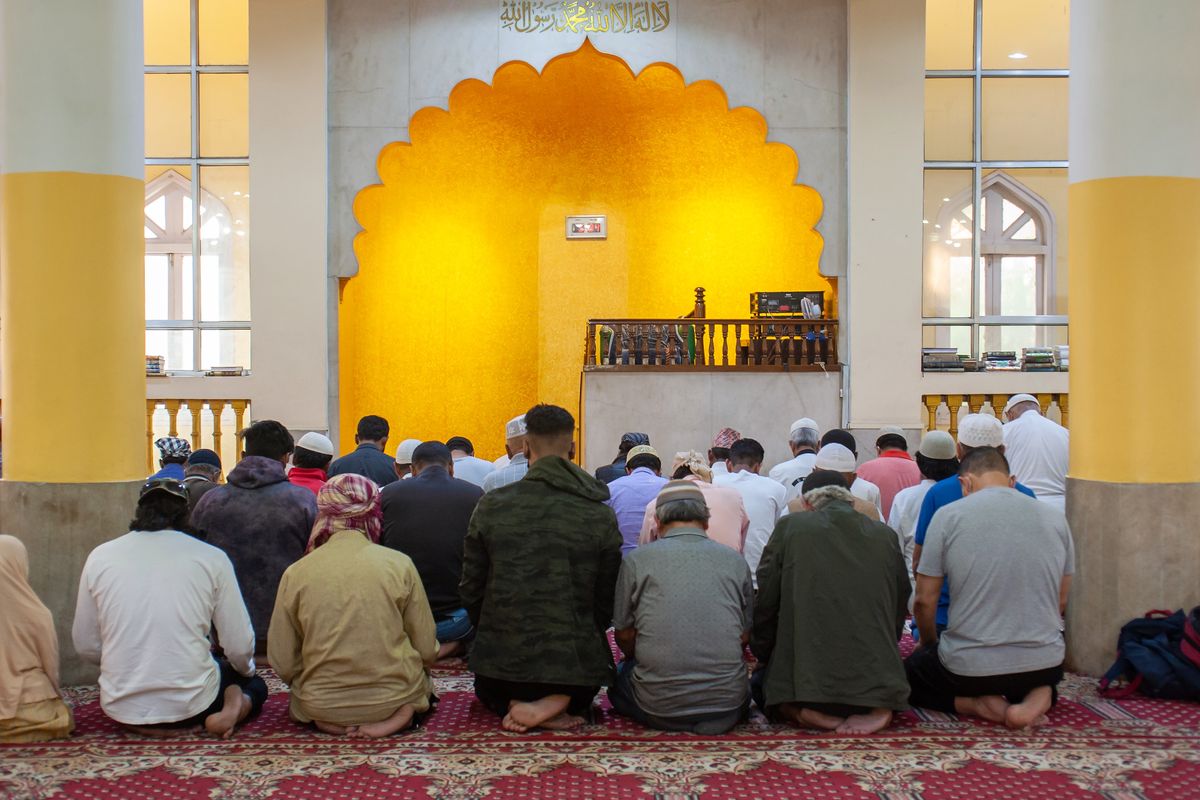
Twenty-eight-year-old Shahnawaz Ahmed gets up at around 3 in the morning. Along with his family, he prepares and eats Sehri, the pre-dawn meal, before reading his first namaz of the day. As soon as the sun rises, his fast begins.
Ahmed, who is a businessman, goes back to sleep for another few hours before waking up and going about his day. He completes his daily tasks and offers his noon and afternoon prayers, which take around 15 minutes each, without drinking or eating anything throughout the day. It is only when the sun sets that he has his first sip of water and Iftar, a light meal, before offering his evening prayers.
This is the daily routine for most practicing Muslims throughout the month of Ramadan, or Ramzan as it is often called in South Asia. Ramadan is the ninth month of the Muslim calendar and is widely known as the holy month of fasting. Ramadan is believed to be the time when the holy Quran was first revealed to the Prophet Muhammad by Allah.
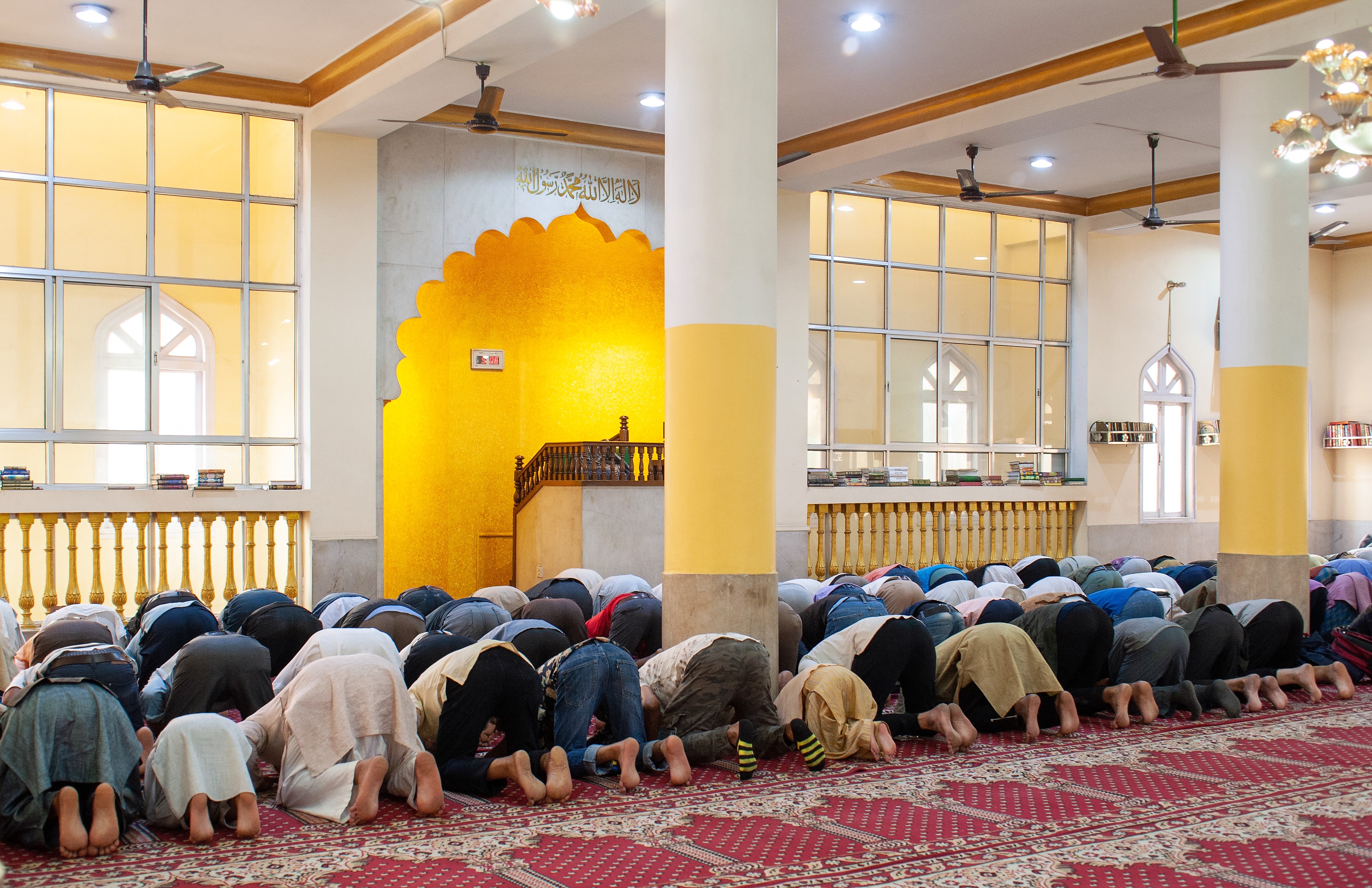
Devoted Muslims observe a dry fast without food or drink and abstain from smoking and sexual relations throughout the 30 days of this month from sunrise to sunset. The rewards of every good deed done during this month are multiplied 70 times, according to a hadith narrated by the scholar Ibn Khuzaymah. Laylat-Al-Qadr, the night on which angel Jibreel was sent down by Allah to recite the opening verses of Quran to Prophet Muhammad, is believed to fall on one of the odd nights of the last 10 days of Ramadan.
Today, May 3, marks Eid-Al-Fitr the end of the holy month of Ramadan, a joyous time for Muslims all over the world.
“I believe that everything that we ask Allah for during this month is fulfilled in one way or the other. Such is the power of Ramadan,” said 19-year-old Nadia Fatma, a student at Tribhuvan University.
For her, staying up all night during Laylat-Al-Qadr to offer prayers and recite the Quran together as a family is the most meaningful part of Ramadan.
“It deepens our bond with our family and with Allah,” she said.
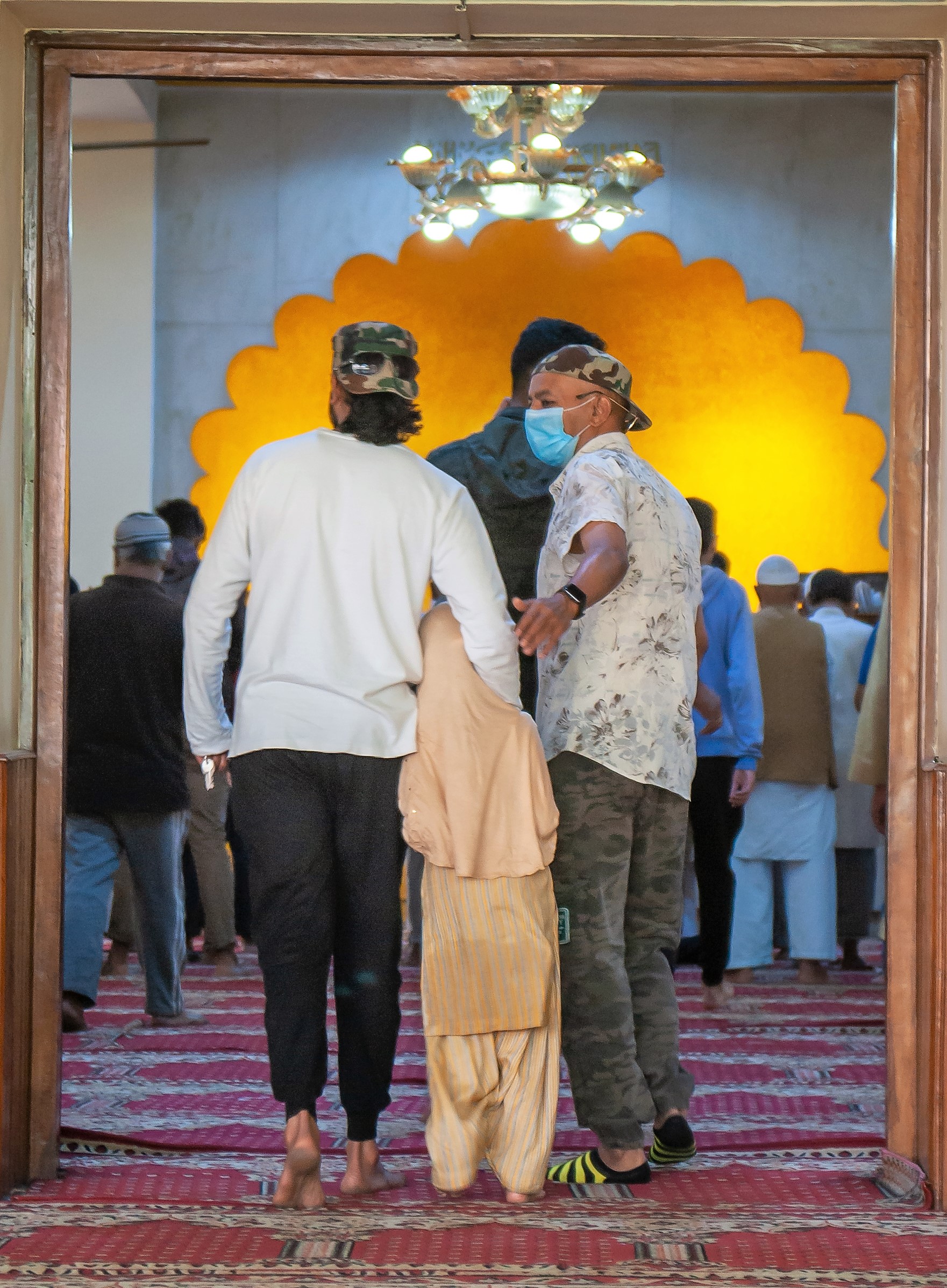
Muslims begin fasting, also known as Roza, when they reach puberty. This is usually between the ages of 10-14 for girls and 12-16 for boys. Most kids, however, begin at around 10 years of age, following in their parents’ footsteps in order to get used to the fasting process. Roza lasts for anywhere between 13-17 hours, depending on where one is located.
“I first started observing Roza at the age of 10-11 and initially fasted for only around five days a year. Gradually, I increased my fast days to 10 and over the years came around to observing all 30 days of fasting,” said Fatma.
The purpose of fasting is to help Muslims realize the suffering of people who do not have enough to eat and encourage them to comply with an act of righteousness, fear of Allah and total submission towards him, according to the Quran.
During the days of fasting, most people prefer to stay at home in order to conserve their energy. Fatma, who must go to college, says that on some days it becomes difficult to go on till evening.
“But I recall the purpose of the fast and strengthen my Niyat to pull through the day,” she said. Niyat, in this context, refers to the willingness to fast for Allah.
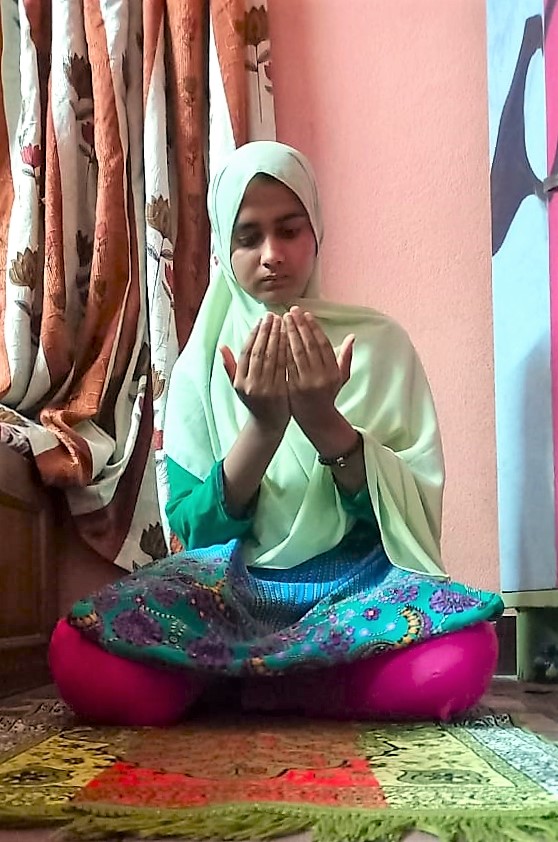
While most people equate Ramadan to fasting, fasting alone is insignificant in the eyes of Allah, says Gani Ansari, a journalist with the BBC Nepali Service. In order to gain rewards from this month, Muslims must make an attempt to follow all five pillars of Islam, he said. One must do shahada (declaration of faith in the oneness of Allah), salah (five namaz prayers a day), sawm or roza (fasting), zakat (charity), and hajj (pilgrimage).
Hajj is pilgrimage to the holy city of Mecca in Saudi Arabia, which every adult Muslim must try to complete at least once in their lifetime. Those who cannot afford to go on the hajj can perform other activities that have the same rewards. Zakat, meanwhile, requires every able Muslim to donate 2.5 percent of their wealth to someone in need during this month in order to learn empathy and compassion. Ansari has fulfilled this duty ever since he started earning an income, he said.
“Ramadan is the trailer for the rest of the 11 months of the year. The way one observes this month is how the rest of the year will go for them,” said Ansari.
People who might have missed their namaz prayers or gotten involved in deeds prohibited by the Quran in the other months observe Ramadan with sincerity in order to reap the benefits of this significant month.
Ramadan is considered to be the purest month for Muslims from all spheres, be it physically, mentally, emotionally or spiritually. Fasting does not simply include abstaining from food and water but refraining from activities that negatively impact their peace, like lying, gossiping, getting angry or involved in arguments, speaking in a loud voice, singing, dancing and watching any form of entertainment.
“When I say something bad about someone else during Ramadan, I immediately apologize to Allah and regret that I did that,” said 17-year-old Aliza Khan.
Her friend Areeba Tariq, also 17, reported that they also refrain from watching any television.
Muslims share an individual connection with Allah that evolves with age. Most Muslim children in Nepal are taught to read the Quran in Arabic over a period of seven to eight years by a maulana, a respected Islamic scholar and teacher. But some rely on translations in Urdu, English, Hindi or Nepali. Ansari, who only started getting interested in Islam after his 12th grade exams, reads the Romanized version of the Quran.
“The more I recite the Quran and the more that I understand Islam, I understand that there is someone watching me and it keeps me from going down the wrong path or harming others,” said Ahmed, the businessman.
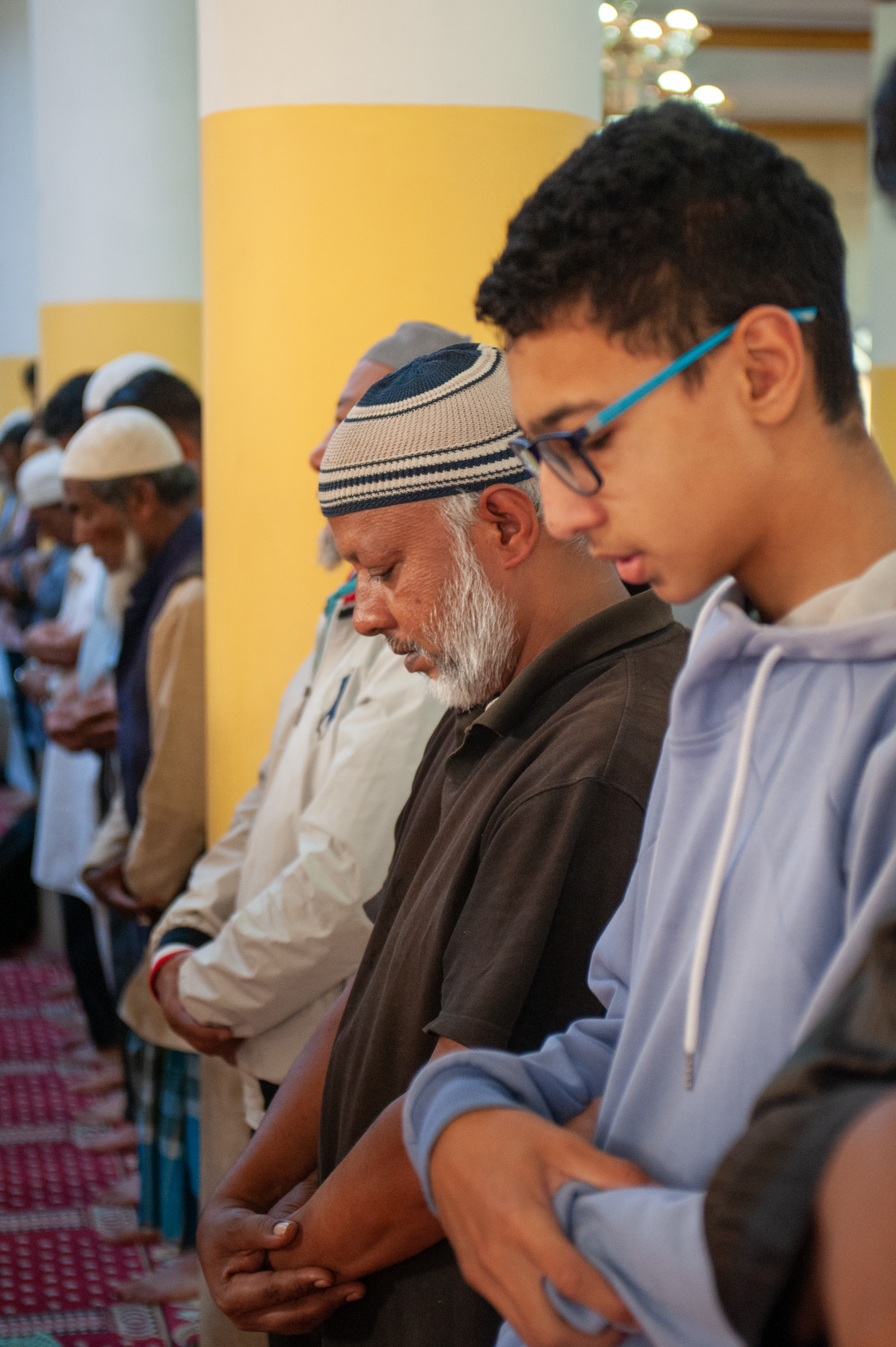
For Muslims, reading the Quran and fasting during Ramadan is all about building this personal connection with Allah and reinforcing their faith. But communities in various parts of the world mark Ramadan and celebrate Eid in different ways. In Nepal, the atmosphere of Eid is very different from than that of other countries that have larger Muslim populations. Celebrations are limited to family gatherings, where members gather to feast on delicacies, wear new clothes, and receive Eidi from elders. Younger Muslims like Khan and Tariq eagerly await their Eidi, which is similar to Hindu dakshina during Dashain, so that they can go shopping and buy new things.
As Muslims are a minority in Nepal, constituting just around 4 percent of the population, there is a curiosity among the majority Hindu population regarding Ramadan and Eid, says 27-year-old Faija Parween, an entrepreneur and event curator of Namaste Eid.
“There is a lot of curiosity among people from other communities about Islamic culture. Many believe that Eid is a festival only for the Muslim community,” said Parween.
This is what led her to start Namaste Eid in 2017 to provide a platform for both Muslim and non-Muslims to come together and experience Eid as a community. This year, it is taking place on May 7, Saturday, at Bhrikutimandap.
Things, however, are different in towns with larger Muslim populations, like Biratnagar and Birgunj. There, the mood is more festive and many Hindus too take part in Eid celebrations. That is the beauty of Nepal as a multicultural nation, says Ansari.
“Before visiting my home in Parsa for Eid celebrations, I ring up all my friends. On the day of, my house is filled with friends, most of whom are Hindus, where we enjoy each other's company and Eid delicacies,” he said. “Despite our religious differences, every time my friends and colleagues wish me Eid-Mubarak, I feel that the day becomes even more special than it already is.”

COVID19
News
6 min read
With the govt unable to implement a coherent Covid strategy--including regarding festivals--fed up Lalitpur denizens take matters into their own hands
Features
5 min read
Uncertainty and insecurity prevail for Nepalis in Australia
Features
6 min read
Queer — A celebration of art and activism is not only a documentation of Nepal’s queer community’s celebrations and struggles but also a form of resistance.
Perspectives
7 min read
Since coming to power, Prime Minister Oli has attempted numerous times — via ordinances — to bypass the legislation and vest the powers to make laws within himself.
Features
4 min read
The biology of same-sex attraction seems to involve a host of genes.
COVID19
News
3 min read
A daily summary of Covid19-related developments that matter
Perspectives
8 min read
Nepal will be inviting FDI in agriculture, when it is India’s involvement of corporate interests in its agriculture sector that has led to massive protests.
COVID19
5 min read
The coronavirus pandemic highlights longstanding class differences and their unequal repercussions on our society